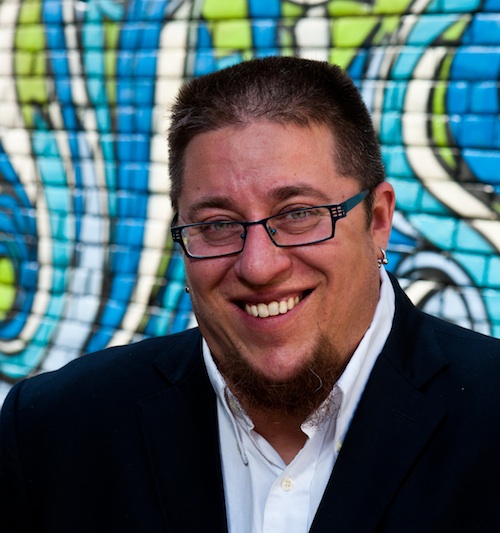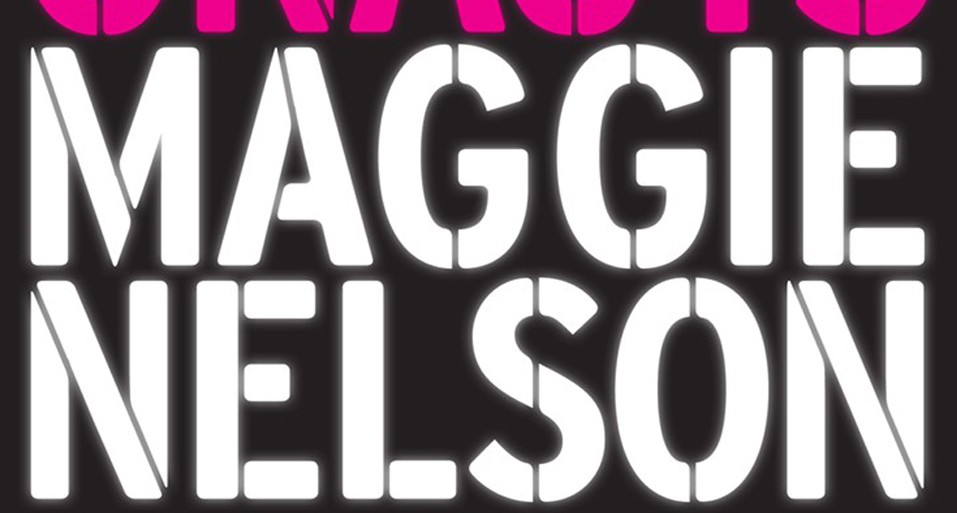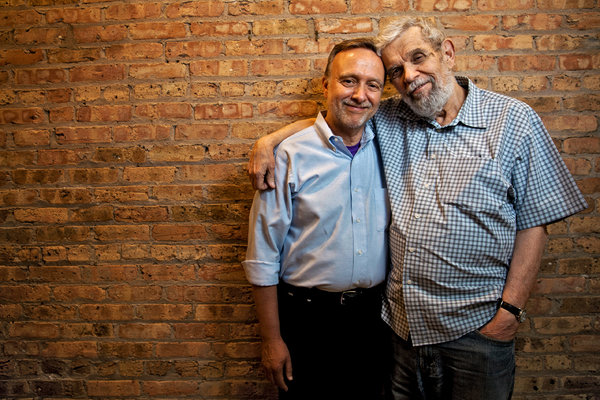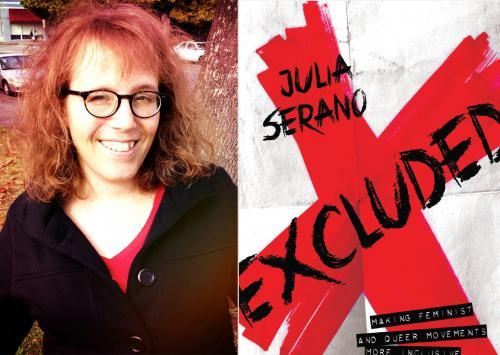
S. Bear Bergman’s newest collection of essays, Blood, Marriage, Wine, and Glitter, is a welcome addition to his previous work: The Nearest Exit May Be Behind You, Butch is a Noun, and Gender Outlaws: The Next Generation, which he co-edited with Kate Bornstein. In it, he explores the bonds of family, friendship, and community. With humor and sensitivity, he exemplifies how being true to one’s self opens up limitless possibilities of happiness and love.
On Family
Bergman opens his chapter “Gay Married,” with a quote from comedian Wanda Sykes, “I recently got gay married or, as I like to call it, married. I don’t have gay lunch, I have lunch. I park my car, I don’t gay park it.” He notes that he is “hitched. Or to be specific…gay-hitched.” Bergman believes that gay marriage is different than heterosexual marriage. For example, he and his partner are not sexually monogamous, and they do not conform to “presumed, hetero-style gendered divisions of labor.” But he also relays the ways in which his gay marriage is viewed as less than a heterosexual marriage and the ways in which the legitimacy of their marriage is continually challenged. He notes how he and his husband must choose travel destinations, schools, and synagogues based on their inclusivity and the safety that their family would be afforded in those environments, especially in cases of emergency, where they risk not being recognized as a family.
On Friendship
On Bergman’s first date with his future husband, Ishai asked him about his “constellation of intimate people.” This question is one of the ways in which Bergman was won over. Here was a phrase that acknowledged the diversity of relationships one holds dear, and Bergman found himself opening up about his “boyfriend Bobby and inimitable femme friend Hanne, [his] partner-in-crime Turner and [his] good boy Zev, and Kate, [his] longest love”(32). He discusses how sparse our language options are when asked to name relationships that aren’t culturally valued. In fact, when people ask him about his family, he often starts “waxing rhapsodic about the wonderful people in whose orbit I happily make my homes,” but they interrupt him asking him about his “real family,” whom he refers to as “his family of origin.” He points out that for many queer and transfolk their friends become their families, sharing one another’s sorrows and joys, triumphs and defeats, and loving one another unconditionally.
On Community
As an active member of the queer community, Bergman recounts the many times queer folks have sheltered him in times of need and the times he has helped others to find places to stay. But he also remembers a time when he emailed a friend and her roommate about putting up a stranger. The roommate was furious at his audacity, and Bergman was shocked by her response. His friend gently clarified, “But Helga’s…straight.” As members of an oppressed group, queer and trans people must look out for one another; their safety may well depend on it. Bergman explains, “I guess if you live in the arid desert of tribelessness, where there’s no oasis but the one you’ve paid cash for when you’re out of your comfort zone, it might be quite a shock to discover in your email someone you faintly know trying to offer your couch to someone you don’t know at all…She lives like she expects to always be able to afford to pay, in cash or some other valuable consideration, for whatever she needs. Me, I’d rather share. It’s so much nicer this way” (183). In this way, Bergman underscores the deep bonds members of the queer community often share. While these bonds may be born out of adversity, they ultimately provide a strength and sustenance that many mainstream heterosexuals will never have the fortune to experience.
In Short
Bergman crafts new language to discuss family, friends, and community in his compelling collection. Or as Hanne Blank, author of Straight: The Surprisingly Short History of Heterosexuality, writes, “S, Bear Bergman writes tenderly and thoughtfully about the many many ways family creates us—and breaks us—for which we have few words.” If you want to go from laughing to crying, pick up this book.
For the past twelve years, Robin Petrovic has been teaching English Composition, Literature, and Gender & Women Studies at the University of Illinois at Chicago, where she infuses Queer Theory into all of her courses. In 2011, Petrovic co-founded Gay4Good: Chicago, an inclusive LGBT volunteer organization that donates its time to social welfare and environmental service projects. She is a former literature blogger for IntraSpectrum Counseling.
IntraSpectrum Counseling is Chicago’s leading psychotherapy practice dedicated to the LGBTQ+ community, and we strive to provide the highest quality mental health care for multicultural, kink, polyamorous, and intersectional issues. For anyone needing affirming and validating support in their healing, please click here or email us at help@intraspectrum-chicago.com.





 Today, July 26th, is National Disability Independence Day. This annual commemoration marks the day in 1990 when the Americans with Disabilities Act (ADA) was signed into law. The ADA enshrined several crucial civil rights protections for individuals with disabilities, but it still falls short of its intended goals after over 30 years on the books.
Today, July 26th, is National Disability Independence Day. This annual commemoration marks the day in 1990 when the Americans with Disabilities Act (ADA) was signed into law. The ADA enshrined several crucial civil rights protections for individuals with disabilities, but it still falls short of its intended goals after over 30 years on the books.